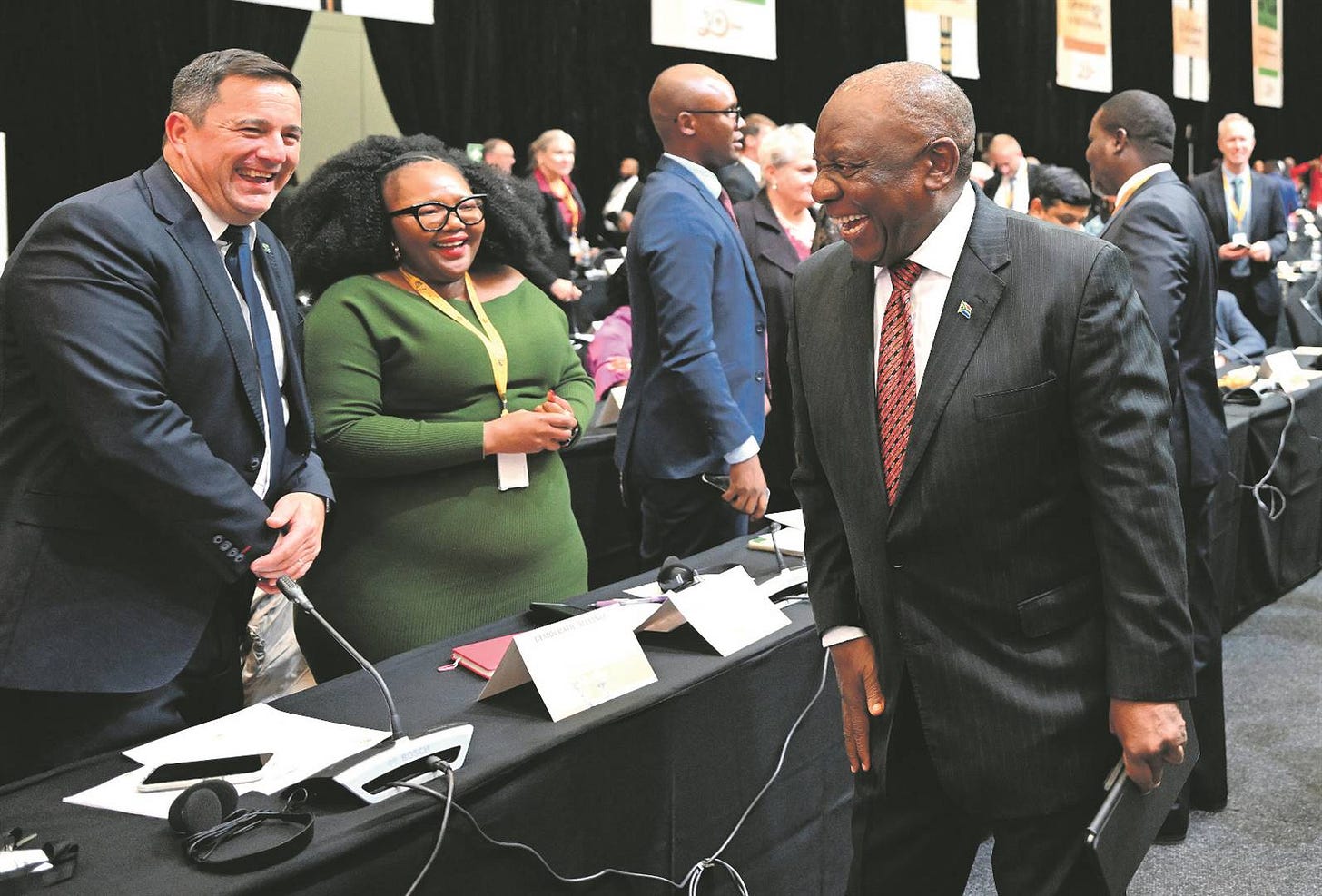GNU Power Struggle: Who Truly Leads South Africa's Unity Government?
Ramaphosa's Authority and the DA's Influence
Navigating who the true leader of the Government of National Unity (GNU) is continues to be an interesting conversation without a clear, direct answer. President Ramaphosa is expected to announce his cabinet in the coming days. The President seems less in control to some as parties make demands about the cabinet; however, others believe he has the outright authority to pick a cabinet suitable for himself. But who needs whom? Does the DA need President Ramaphosa for the GNU to come to fruition, or does President Ramaphosa require the DA to remain president?
Recently, with the addition of five other parties, the GNU now comprises ten parties: African National Congress, Inkatha Freedom Party, People’s African Congress of Azania, Freedom Front +, Rise Mzansi, Good Party, Patriotic Alliance, Democratic Alliance, United Democratic Movement, and Aljama-ah. After rigorous discussion and a press release statement, the DA agreed to allow other parties to join after initially invalidating the inclusion of the PA led by Gayton McKenzie. At first glance, the ANC seems to hold control over the GNU, but this is far from the truth.
Several issues torment the GNU. The ANC, being the biggest party but still requiring the other parties to pass legislation and be an effective government, has left them in a hard place. Without the support of the DA, which holds 22%, and the ANC holding 40%, the DA is in a very powerful position. Historically, they would have opposed anything the government would have done. Now, however, they have to come to the defense of the ANC in many cases and are going to be watched with great scrutiny.
Already, the concession by the DA to not support a vote of no confidence against President Ramaphosa for the Phala Phala case has cemented Ramaphosa as the leader of the nation and the GNU. However, this does not absolve him from internal party conflicts.
On multiple occasions, various ANC officials and supporters have continued to denounce this partnership with the DA. Additionally, there are rumors that many in the ANC would have preferred a coalition without the DA, which potentially would have been more unstable and right-leaning, with the option to coalition with either the MK or EFF or both. The President called for a GNU where parties were invited to all take part in governing South Africa.
However, with the DA being the only party with the second-largest group in the GNU, substantially larger than the IFP with 4%, they have been able to make demands to the President because they are well aware of what the DA pulling out could entail. Already, the EFF tabled a vote of no confidence against President Ramaphosa in the first sitting of Parliament. Without the DA’s support and some ANC members having an unpopular opinion about President Ramaphosa, he is in a precarious position.
On the other hand, the DA cannot effectively pull out of the GNU because it will most likely create two narratives around the party and its politicians: the DA is self-interested and only wants to govern for itself, giving up on the idea of "Unity," and the DA failed because they were unable to stabilize the government. Without the DA, the ANC will be forced to turn to right-leaning forces, which the DA has termed a “doomsday coalition.”
With so much to lose and not much to gain, both the DA and President Ramaphosa have no alternative to the GNU if it does not come to fruition. Without the GNU, the presidency will be in jeopardy, internal ANC fighting will worsen, leading to poorer governance, and the DA will have to find a new angle in 2026. The DA can no longer call the ANC the enemy and the problem, especially with the future leaning towards more co-governance between these two parties.
In answer to the question of who is the leader of the GNU, it is very layered. President Ramaphosa holds the power to appoint the Cabinet and lead an effective government. However, there is likely much more consideration he has to take due to the decision to continue remaining with the President to pass and reject bills. Furthermore, the DA’s influence in the GNU would make us assume they hold more power than the numbers suggest because of their position and the unwanted alternative of having the DA pull out. Without the DA, the ANC sits at 48%, essentially locking out the government, which is why a lot is at stake with these negotiations.
As you sift through articles, social media, and have conversations about the GNU, we have to look at it from multiple perspectives. In some instances, the DA is more powerful than the ANC; in others, it is the complete opposite. However, the final decision was made by the President, who can very much decide to align himself with ANC policy. So, as the negotiations continue, you have to ask what is at stake and who are the real winners and losers.
Just under a month after the election, there still seems to be no clear victor or party in control. This could be the future of South Africa, where everything has to be done by consensus, or this could be the turn for more radical politics.



Great Read ! With the newly elected government, I look forward to see how you engage with the distinction between State & Government and whether that will become clear to begin with.